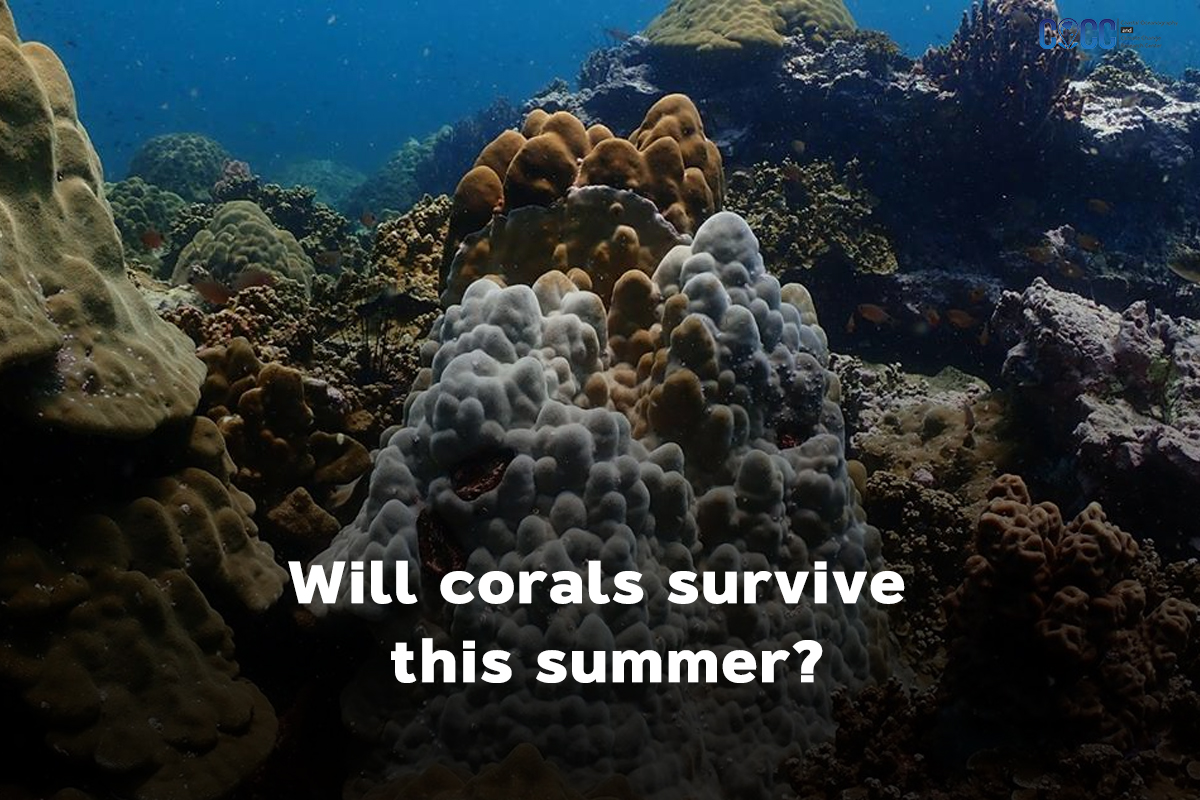
Dr.Mathinee Yucharoen
Marine and Coastal Resources Institute (MACORIN), Faculty of Environmental Management (FEM) and Coastal Oceanography and Climate Change Research Center (COCC), Prince of Songkla University
With the temperature rising as before Songkran festival, someone might ask how hot the temperature would be in this world? The trend of elevating temperature has been certainly predicted. Everyone knows that our climate is changing and the air temperature is increasing, as it’s called, “global warming”
More information about high temperature trend from the year 1884 – 2018
https://climate.nasa.gov/vital-signs/global-temperature/
High temperature not only occurs on terrestrial ecosystems but it also happens to the ocean. The summer months are risk period for coral reefs that are highly sensitive to temperature change, leading to coral bleaching. When we see bleached corals (healthy corals are usually colorful), they are a result of the loss of the zooxanthellae, living in their tissues. These microscopic algae provide energy for coral via photosynthesis process. The bleaching is weakening of corals, due to the lack of food from zooxanthellae, and it may be subjected to mortality when corals are exposed for a long period to high temperatures
More information about coral bleaching
https://oceanservice.noaa.gov/facts/coral_bleach.html
NOAA (National Oceanic and Atmospheric Administration U.S. Department of Commerce) has reported the recent sea surface temperature anomaly during this April, which was 1 – 1.5 °C higher than average. Similarly, seawater temperature in Panwa Cape, Phuket (Figure 1) was recorded at 3 – 5 m in depth and also increased since March which seems faster than last year (Phuket Marine Biological Center).

Figure 1 Seawater temperature of 2018 (red line) and 2019 (black line) recorded from HOBO Pendant® 64K at 3-5 m in depth on coral reef at Panwa Cape, Phuket (Source: Lalita Patchim)
There was also an orange color status or “warning status” around the area of Thai Waters from NOAA Coral Reef Watch, recorded at 24 Apr 2019 (Figure 2). However, there is no report about serious coral bleaching in local areas among our marine scientific community. We found only reports about paled coral colonies or partially bleached coral colonies in some areas, i.e., Ka-loak Island, Chumphon, Thalu Island, Prachuap Khiri Khan, Racha Island, Phuket, Ao Phang Nga, and Kradan Island Trang, which commonly occurred during previous summer months (Figure 3 and 4)
More information about Thai Coral Reef Network:
https://www.facebook.com/groups/175422549249325/
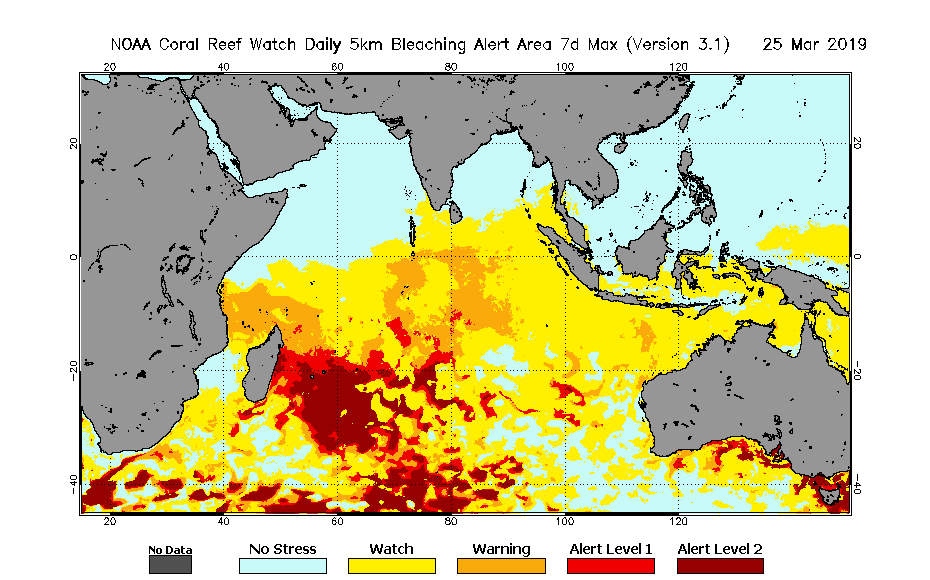
Figure 2 Map of NOAA Coral Bleaching Heat Stress Alert Area recorded on 24 Apr 2019 (Sources: NOAA Coral Reef Watch. 2019, updated daily. NOAA Coral Reef Watch Version 3.0 Daily Global 5-km Satellite Virtual Station Time Series Data for Indian Ocean, Apr. 24, 2019. College Park, Maryland, USA: NOAA Coral Reef Watch. Data set accessed 2019-04-26 at https://coralreefwatch.noaa.gov/vs/data.php)
Our corals are at risk of bleaching and dying. As we are living in this world and might be a consequence of global warming. We can easily help coral reefs by reducing all human impacts such as changing our behaviors which negatively affected our environments, and increasing our awareness. There are more opportunities of coral reef recovery when they are in good environmental condition; no destroying, touching, or treading, no garbage, no wastewater or no pollution. Hopefully, our coral reefs will survive through this summer and still be beautiful in Thai waters.
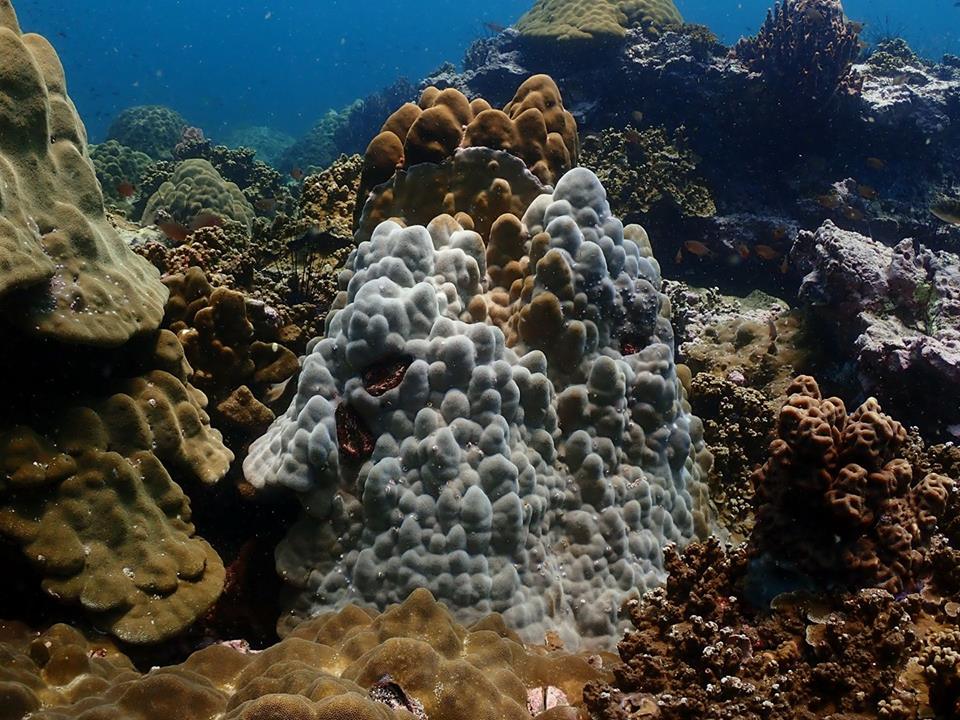
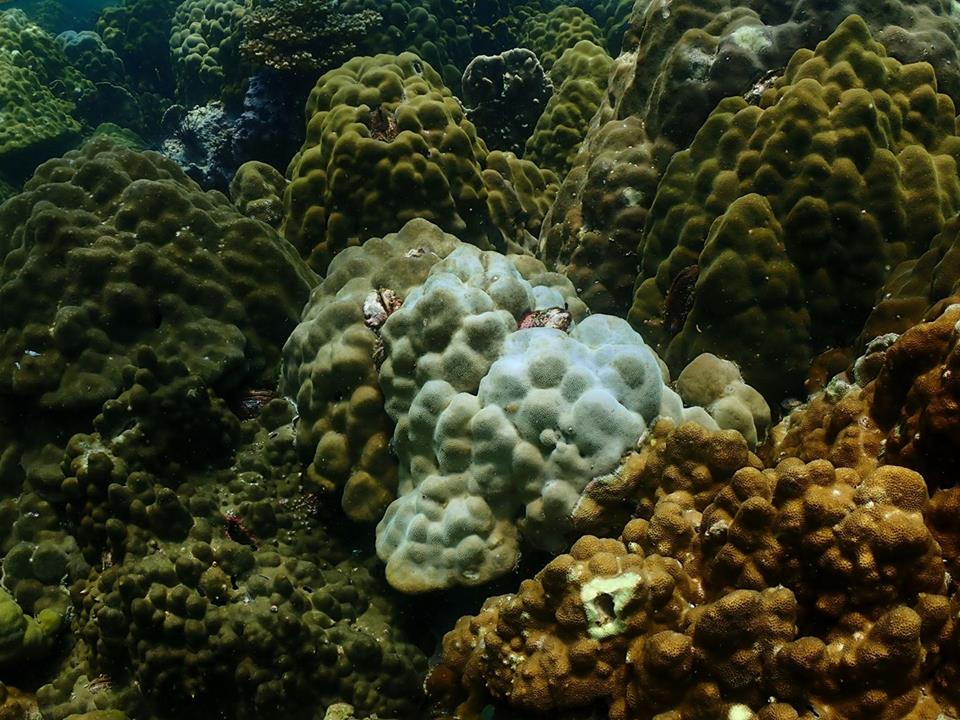
Figure 3 Paled coral colonies, 2-4 m in depth at Ka-loak Island, Chumphon Province recorded on 22 March 2019 (Source: Watchara Samsuvan)
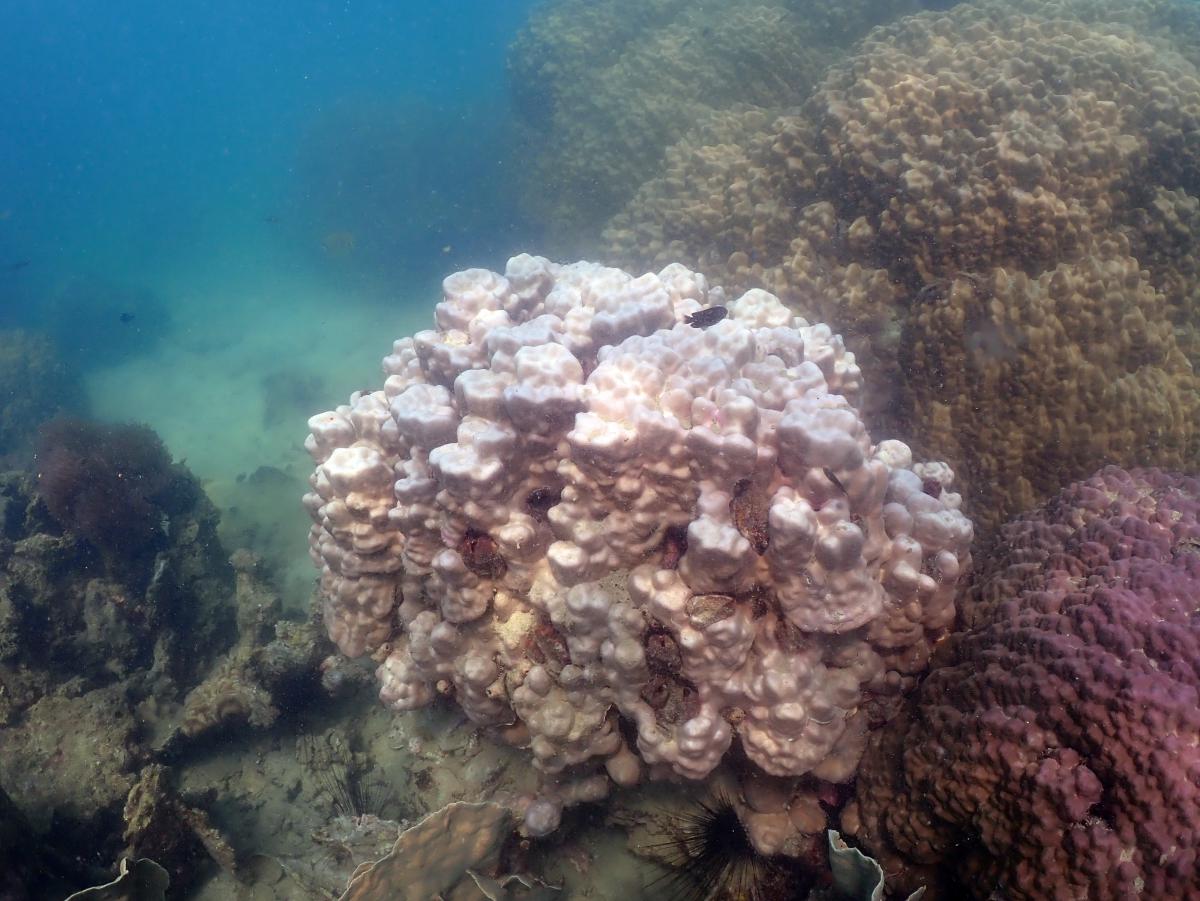
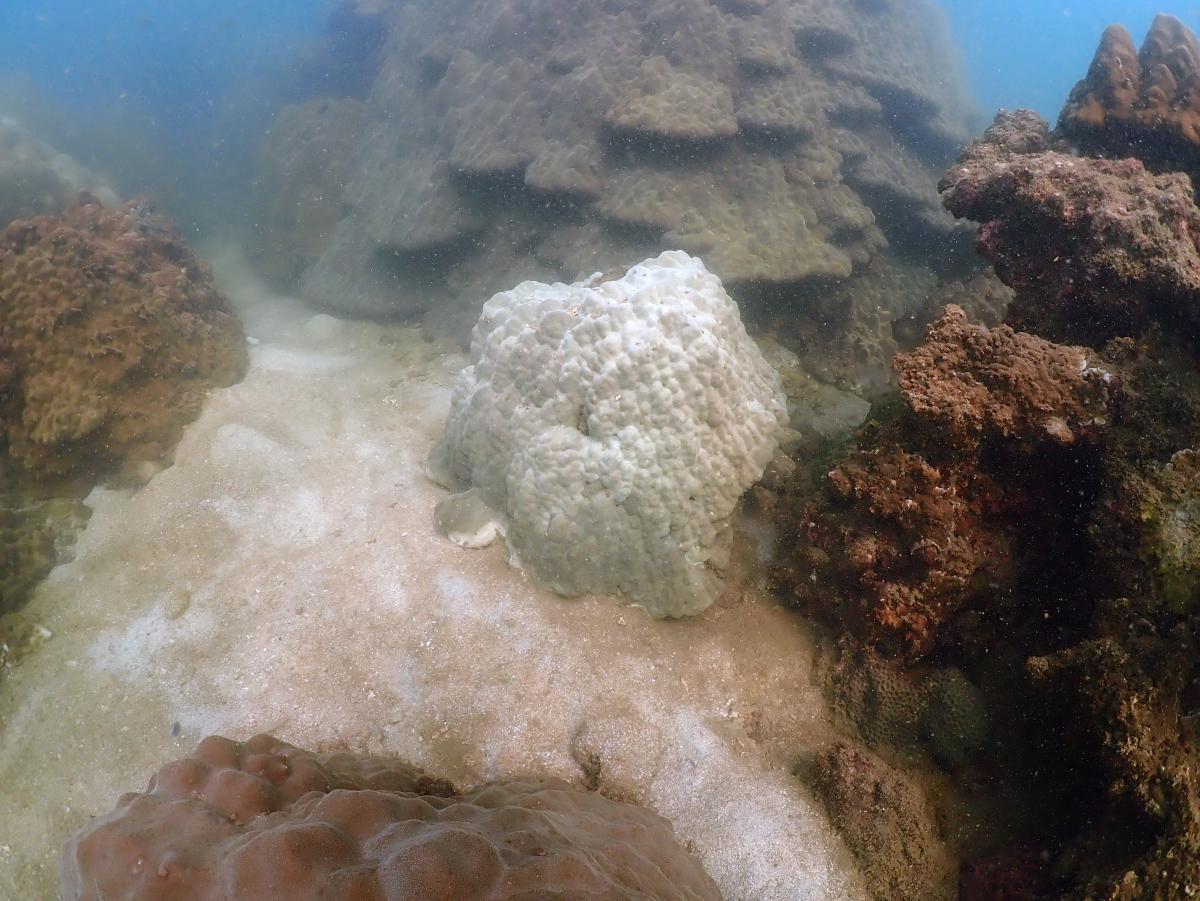
Figure 4 Paled coral colonies, 1-3 m in depth at Thalu Island, Prachuap Khiri Khan Province recorded on 20 April 2019 (Source: Watchara Samsuvan)
Author:
Dr.Mathinee Yucharoen
Marine and Coastal Resources Institute (MACORIN)
Coastal Oceanography and Climate Change Research Center (COCC),
Prince of Songkla University
Supportive data:
Dr.Lalita Patchim
Phuket Marine Biological Center (PMBC)
Dr.Thanongsak Chanmethakul
Faculty of Science and technology, Phuket Rajabhat University
Watchara Samsuvan
Chumphon Marine National Park Operation Center 1